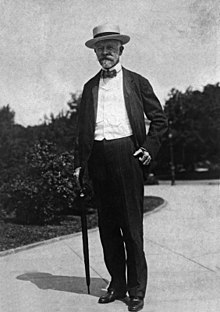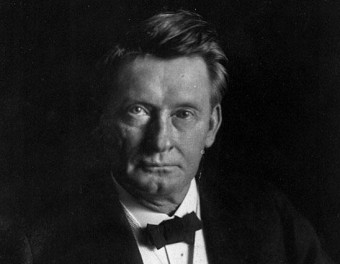On the other hand, his survival might be a sign that it is Divine Providence that Bryan should run for a third term. It could go either way.
Still don't see it. He alone can't break the two term limit. (And TEDDY!)
On the other hand, his survival might be a sign that it is Divine Providence that Bryan should run for a third term. It could go either way.
As much as I hate to say this, it might be December before I post another chapter. All the things I have postponed since October have caught up with me.
Nevertheless, the election of 1904 will probably be split up into three chapters. There's a lot going on.
As long as you post it I'll be happy. I think we can wait a week or two
So, Bryan seems to become some sort of proto-FDR. I would love to see him winning a third, fourth and fifth term and leading America during WWI. Also, would Bryan give any specific reason to the public for why he broke the two-terms tradition, like FDR, to maybe gain a boost, like ,,Roosevelt should win a third term because he is the only one who could lead America during this time and not allow for the Nazis marching trough Paris to become an excuse for our American boys to go to their deaths over the Atlantic, again" ?
It's pretty hard to see how that's plausible. I'm not sure how seriously you take realignment theory but the dominance of the Republican party from 1860 to 1932 is undeniable. The only thing that made Democrats marginally competitive during this era was the crutch of disenfranchisement, as sell as the fact they still got congressional representation for the supressed black voters. Even Woodrown Wilson had to rely on a divided Republican to get elected, and he bareley passed 40% of the popular vote. A foreshadower to FDR sure, but considering how narrowly he won twice he can't do too much given the constraints of his time period.
Perhaps, although compared to Cleveland and Wilson, Brian hasn't utterly disgraced himself, and honestly, I find myself skeptical about the 1893 depression lasting as long as this timeline says, so the economy really should be okay by now, not least thanks to Brian's more activist approach. He'll need a lucky break or two, but I think he could at least swing a third term, especially if the Republicans are divided or blunder.
As for realignment theory, I don't buy it. Party dominance can swing fast, like when the Republicans nearly got three terms in a row during the "peak" of the New Deal era. Meanwhile, this era IOTL was marked by a bunch of close elections in the 1870's and 80's, and then Grover Cleveland presiding over a massive recession that put Republicans in the driver's seat for a while before collapsing under their own weight again, and then getting rescued by another failed Democrat. Not the stuff Good Feelings-esque dominance is made of.
This is a pretty common misconception, but measuring the strenth of a political regime by how many elections are won is only half of the equation.
The other half is just how much the weaker party has to compromise to remain viable. Let us not forget that Eisenhower was and remains reviled by the "true conservatives", because he was never truly one of them and could have fit in with either party. Nixon chipped away at the edges with the southern strategy but remained firmly welded to keynesianism. The one time Republicans nominated a true ideologue (Goldwater), instead of a technocrat (Eisenhower), or a culture warrior (Nixon) they suffered their most devestating defeat of the New Deal era.
Honestly, I think that's putting the cart before the horse, and mistaking ideological heterogeneity for compromise. The reason that that error could happen is because the parties have only really been consistently ideologically sorted twice, at most. In the 1850's, and today. Otherwise, they may have varied at one time or another, but both fit into a relatively narrow band of consensus for the time, and that gets mistaken for one party dominating, and thereby imposing its views on the other. If the Republican party of the 50's and 60's were so submissive not to New Deal liberalism, which crossed parties, but specifically to the Democratic Party, then nothing like McCarthyism, which disproportionately hit the allegedly dominant party, would have been allowed on partisan grounds. Hell, McCarthy was stopped when he started attacking Republicans, not Democrats, which if anything makes the former seem dominant ideologically and electorally.
Besides, we were talking about the ability of a Democrat, specifically Bryan, to win the presidency a third time. In that context, how many elections were won historically sounds like a pretty good benchmark, no?
We can continue this with PM's, i'd rather not dominate his thread, cool with you?
I just see it as unlikely excluding a divided Republican party or scandals ooccuring.










A four-way race? I look forward to seeing how this turns out.